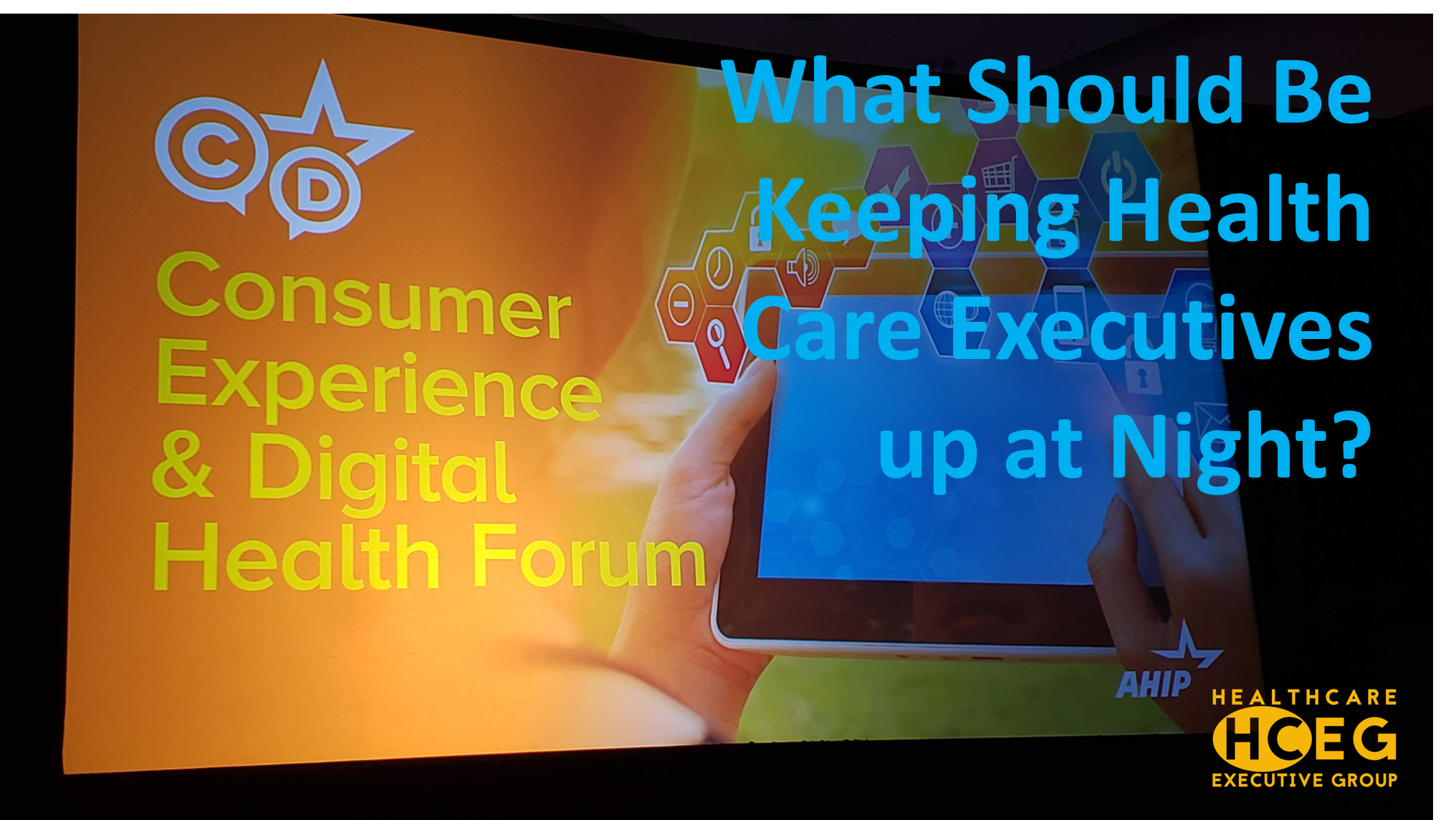
As costs continue to rise, more financial responsibility is shifted to individuals, and non-traditional companies disrupt the traditional healthcare space, executives and industry leaders are under tremendous pressure to transform their organizations due to the challenge of providing coverage for healthcare services offering reasonable outcomes at a fair price.
At last week’s 2019 AHIP Consumer Experience & Digital Health Forum in Chicago, HCEG’s Executive Director Ferris joined Dr. Esteban López, MD, MBA, Chief Medical Officer at BCBS of Texas and Ian K. Gordon, HCEG’s Board Treasurer and Former SVP of Health Insurance Operations at Regence Blue Cross BlueShield.
These three health industry leaders shared their insight on the following:
- How challenges, issues, & opportunities have evolved over the last few years
- How they’re transforming and innovating their organizations
- How health plans help support health care consumer’s
- How socioeconomic status and social determinants of health impact health plans
- The role of health plans in addressing the social determinants of health and what work they’re doing
- What they’re doing right and what do they need to do better
- What them up at night with respect to the policy actions or industry trends
- What excites them about the future for health care
The remainder of this post shares a few highlights from the session. Access all recordings mentioned in this blog post here.
Costs & Transparency, Consumer Experience, & Holistic Individual Health Top 2020 HCEG List
Costs & Transparency, Consumer Experience, and Delivery System Transformation – the key themes of the AHIP-Consumer Experience & Digital Health Forum – also ranked as the top three items on the 2020 HCEG Top 10 list of challenges, issues, and opportunities facing healthcare leadership. In addition, ‘Holistic Individual Health’ is ranked as #6.
Dr. Esteban Lopez Shares What Keeps Him Up at Night (05:53 – 09:17)
Ferris Taylor kicked off the session by asking Dr. Lopez “What keeps you up at night?”
The value that payers bring – is not networks or care management services – although those are important. Their true value is data and analytics. How do we consume data and use that data to derive value for our members so they can stay healthier? How do we use that data to engage with our providers to deliver value-based healthcare?
Over the last several years, providers and payers have become more efficient. At the same time, members have not become worse off but they’re also not becoming better. But there’s still opportunity.
Health plans need to ask:
- How do we use the data we have in a meaningful way?
- How do we couple other readily available data with open-source consumer information and other types of information we have about our members so we can predict outcomes, predict disease, and find the channels where we can best engage our members
- How we can find the channels where members/patients can best be engaged?
New Generations Demand New Levels of Engagement & Value
External disruptors are out there, and they know how to engage healthcare industry incumbents. People want the Amazon Experience and right now, healthcare is NOT like the Amazon Experience. Especially as we look at Millennials, Generation Z and other generations of Digital Natives, we know that they will not stand for the experiences they are having today in healthcare.
Ian Gordon Starts with a Slightly Different Tack (09:30 – 13:18)
The health system itself and health care payers specifically have spent a large portion of their existence contemplating their own value buttons. We look at things very much from an inside-out perspective. And that’s been very useful until we’ve come into the age of consumerism. At this time, we need to continue, which we’ve started that migration, to look at things from the ‘outside in.’
We talk about the power of members. The power of consumers. As opposed to people. We don’t own them. They own themselves. The more information we have, the more we can create models and services and products that meet the needs of PEOPLE!
Health plans talk about social determinants of health. I like to think about ‘Social Determinants of Health’ as ‘Social Determinants of Individual Happiness’ – of which health is a component.
Focusing on Point Solutions Health Plans Want vs. Overall Holistic Health
Ian related a scenario highlighting how many health plans are not properly focusing on holistic health of the individual. Some highlights include:
Health plans give members things they want to address to drive down medical loss ratio; as opposed to the broader aspect of overall happiness of which health is a component. We give members program’s and tell them to lose weight and do more activities. And then we wonder why they don’t succeed. And the reason they don’t succeed is because they ate too much.
We need to look people more holistically at individuals, focus more on their individual needs, find out what is our role, data, access to healthcare, the digital transformation needed to create that personalized service are all the key things, I think, that are necessary.
Healthcare is complex and it’s hard to learn but so are a lot of other things. And given the right amount of time, the other organizations (disruptors) will encroach upon the health plan. So, health plans must focus on the holistic component of individuals. What makes them happy and improves their lives. And we need to figure out how to do that with data and become an expert at that. Or partner with others who can do that. And we need to stop trying to compete on the commodity-based components of our business.
Listen to Ian’s entire scenario here (11:11 – 13:18)
Barriers to Improved Health – A Broader Definition of Social Determinants of Health
After both Dr. Lopez and Ian Gordon shared some of their insight and ideas on social determinants of health, Ferris Taylor noted that social determinants of health can also be considered as Barriers to Improved Health. Dr. Lopez shared his insight as a physician in the Emergency Room of a hospital serving a low-income area.
Listen to Dr. Lopez’s ideas on how providers, doctors, nurses, payers, and others can help address barriers to improved health: 13:30 – 17:40
And Ian’s follow on to Dr. Lopez’s ideas based on Ian’s experience with Habitat for Humanity: 17:41 – 19:38
More on What Should Be Keeping Health Care Executives up at Night
For more on what’s been shared above by Dr. Esteban Lopez and Ian Gordon, listen to this audio recording of the “What Should Be Keeping Health Care Executives up at Night?” session from last week’s AHIP Consumer Experience & Digital Health Forum.
Connect with Healthcare Industry Executives, Leaders, Innovators & Change-Makers
For more information, insight, and ideas on healthcare innovation and the transformation of healthcare, subscribe to our eNewsletter and consider becoming a member of the HealthCare Executive Group.
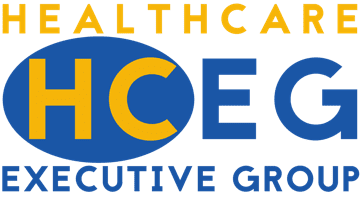


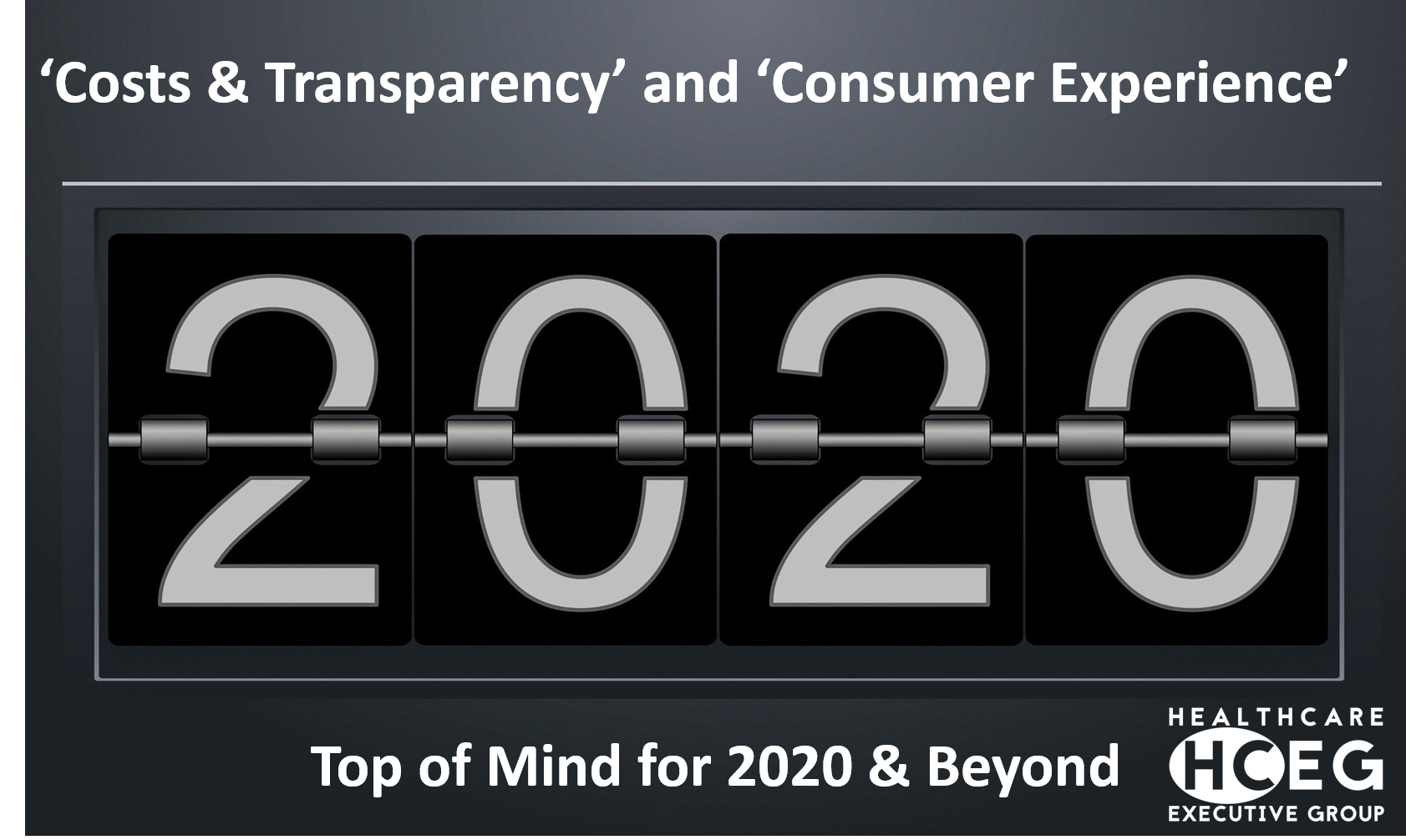

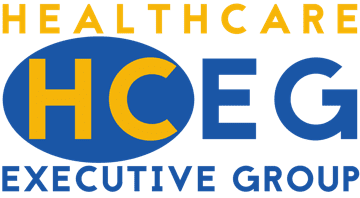
[…] Recap of the HCEG Session on What Should Be Keeping Health Care Executives up at Night? […]
[…] What Should Be Keeping Health Care Executives up at Night? […]